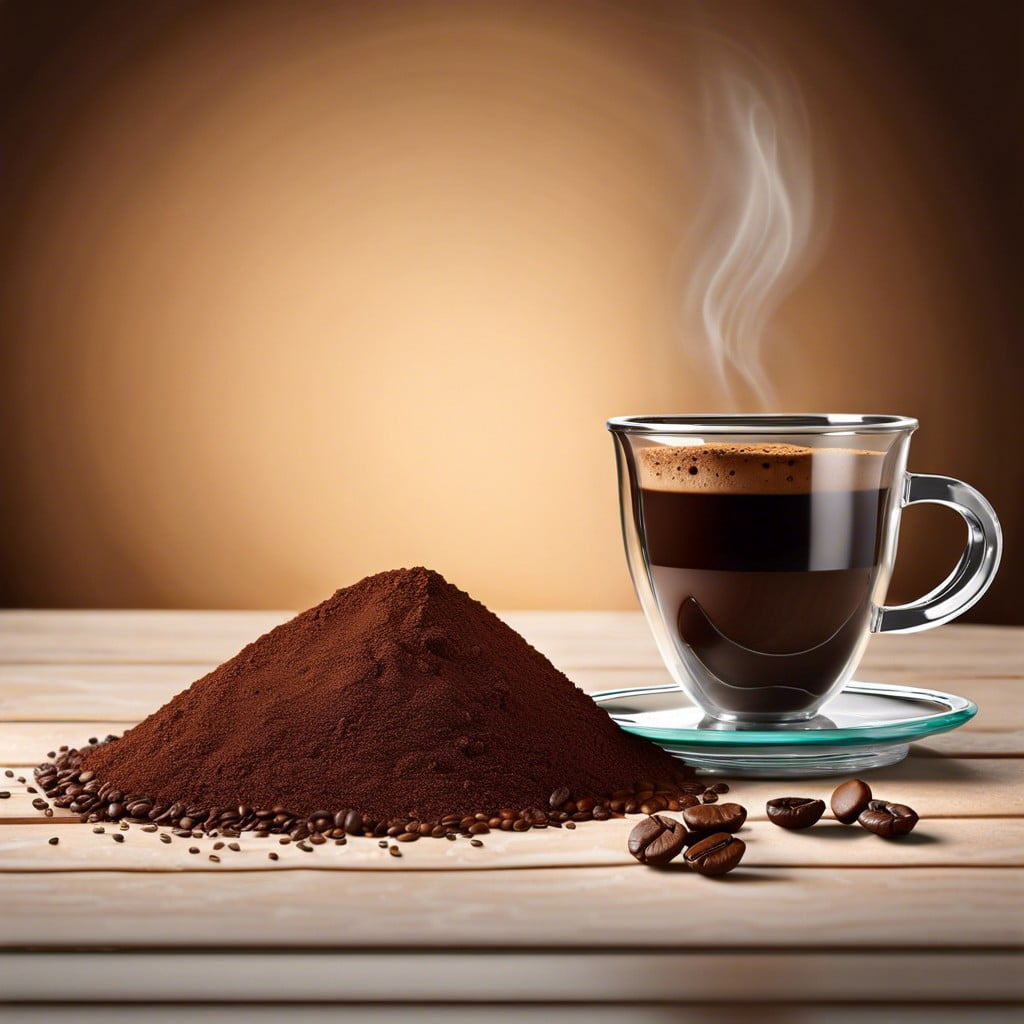Discover how long ground coffee maintains its freshness and what factors influence its shelf life.
Fresh Coffee Vs Stale Coffee: How to Tell the Difference

To distinguish between fresh and stale coffee, consider the aroma and flavor. Fresh coffee boasts a vibrant, rich smell that fills the room, whereas stale coffee’s aroma is flat and less pronounced. When brewed, fresh coffee has a pronounced, complex flavor profile, offering a delightful taste experience. In contrast, stale coffee often tastes bland and lacks depth.
Another indicator is the appearance of the coffee grounds. Fresh coffee typically looks vibrant and feels somewhat oily to the touch, due to the natural oils still present in the coffee. Stale coffee, on the other hand, appears dull and dry.
Lastly, observe how the coffee behaves when brewed. Fresh ground coffee should bubble and bloom when hot water is added, showing that it’s releasing carbon dioxide. Stale coffee will have minimal to no bloom, indicating it has already lost much of its freshness.
Shelf Life of Unopened Ground Coffee
Unopened ground coffee typically retains its best quality for about three to five months at room temperature. However, this can extend up to two years if the coffee is stored in a cool, dark, and dry place. Much depends on the packaging; coffee that’s vacuum-sealed tends to last longer than coffee in a standard bag. The key is to avoid exposure to air, moisture, and light, all of which speed up the degradation process. Always check the expiration date provided by the manufacturer for the most accurate guidance.
Shelf Life of Opened Ground Coffee
Once you’ve opened your bag of ground coffee, the clock starts ticking on freshness. Typically, opened ground coffee maintains its best quality for about two weeks when stored properly at room temperature. After this period, the flavors and aroma begin to degrade, although the coffee is still safe to drink.
To maximize freshness, keep the coffee in an airtight container away from direct sunlight, moisture, and heat. Each of these elements speeds up the oxidation process, which dulls the coffee’s vibrant notes. Avoid storing coffee in the fridge or freezer once opened, as condensation can occur and further affect the flavor.
If you find yourself with more coffee than you can use in two weeks, consider storing portions in smaller, airtight containers or vacuum-sealed bags. This way, you only expose a small batch to air at a time, keeping the rest fresher longer.
Optimal Storage Solutions for Ground Coffee
To maintain ground coffee’s flavor and aroma, proper storage is crucial. An opaque, airtight container is your best friend here; this shields the coffee from oxygen, moisture, and light, which can degrade its quality. Avoid clear jars or containers—even if they’re airtight—as they allow light to penetrate, which can accelerate the aging process.
Always store your coffee in a cool, dry area away from direct sunlight, heat sources, or any places that experience large temperature swings, like near an oven or on top of your fridge. These fluctuations can cause condensation inside the container, leading to stale, flavorless coffee.
If you bulk buy or find yourself with more ground coffee than you can use promptly, consider dividing it into smaller portions and freezing it. This helps preserve its freshness longer. Just make sure to wrap it well and use a freezer-safe, airtight container to ward off freezer burn and flavor cross-contamination from other foods.
By adhering to these pointers, your coffee can retain its peak flavor as long as possible, ensuring every cup tastes freshly ground.
Tips to Extend the Freshness of Ground Coffee
Storing your ground coffee in an airtight container is your first line of defense against staleness. Exposure to air speeds up oxidation, which degrades the quality and flavor of the coffee. Opt for ceramic, glass, or non-reactive metal containers with tight-sealing lids.
Keep your coffee away from direct sunlight, heat, and moisture. A cool, dark cupboard is ideal. Avoid storing coffee in the fridge or freezer as frequent temperature changes can cause condensation and mold.
Consider buying smaller quantities of coffee more frequently. While bulk buying might seem convenient, fresh coffee is paramount for the best flavor.
Lastly, invest in a vacuum-sealing device if you are serious about keeping your ground coffee fresh for as long as possible. This tool can significantly extend the shelf life by removing air from the storage container.